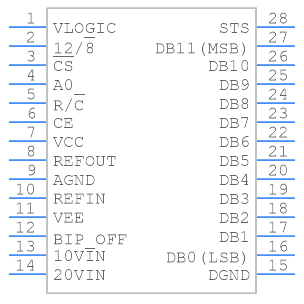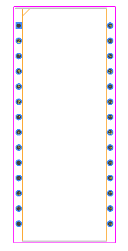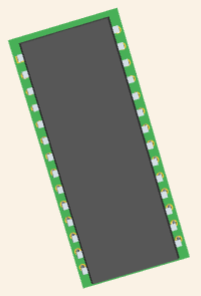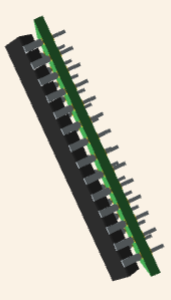AD1674JNZ ADC: Features, Applications and Datasheet
2025-09-11 10:33:19 1382
AD1674JNZ Description
The AD1674JNZ is a high-speed, monolithic 12-bit successive approximation register (SAR) analog-to-digital converter (ADC) designed for precision conversion in data acquisition systems. It integrates a complete ADC architecture, including a DAC, comparator, and successive approximation logic, eliminating the need for extensive external circuitry. With a conversion time of approximately 10 µs and no missing codes, it is well-suited for applications requiring reliable medium-to-high-resolution digitization of analog signals.
AD1674JNZ Features
Resolution: 12-bit, no missing codes.
Conversion Speed: Typical conversion time of 10 µs.
Monolithic SAR Design: Integrates comparator, DAC, and SAR logic.
Input Range: Bipolar and unipolar input configurations supported.
Accuracy: High linearity with guaranteed monotonicity.
Low Power Consumption: Optimized for efficiency in data acquisition systems.
Package: DIP-28 (through-hole), ensuring easy prototyping and robust assembly.
AD1674JNZ Applications
Industrial Data Acquisition Systems – digitizing sensor outputs in control and monitoring equipment.
Medical Instrumentation – providing accurate analog-to-digital conversion for patient monitoring and diagnostic systems.
Military and Aerospace Systems – reliable operation in mission-critical environments.
Communication Equipment – converting analog signals for digital modulation/demodulation.
Test and Measurement Instruments – supporting oscilloscopes, spectrum analyzers, and portable measurement devices.
AD1674JNZ CAD Model
Symbol

Footprint

3D Model


AD1674JNZ Alternatives
AD574AJD – another Analog Devices 12-bit ADC with SAR architecture.
AD1672JNZ – similar ADC with different speed/power trade-offs.
MAX120 – Maxim Integrated’s 12-bit SAR ADC, pin-compatible in some applications.
ICL7109CPLZ – Intersil’s 12-bit ADC for precision instrumentation.
AD1674JNZ Manufacturer
Analog Devices, Inc. (ADI) is a global leader in the design and manufacturing of high-performance analog, mixed-signal, and digital signal processing (DSP) integrated circuits. Founded in 1965 and headquartered in Wilmington, Massachusetts, USA, ADI has built a strong reputation for delivering cutting-edge semiconductor solutions that bridge the physical and digital worlds.
The company’s portfolio covers a wide range of technologies, including data converters, amplifiers, power management, RF and microwave components, sensors, and signal processing ICs. ADI products are widely used in industries such as industrial automation, automotive, communications, healthcare, aerospace, defense, and consumer electronics.
Analog Devices emphasizes innovation, precision, and reliability, enabling engineers to solve complex challenges in signal conditioning, measurement, power efficiency, and connectivity. With the acquisition of Linear Technology in 2017, ADI further strengthened its leadership in power management and broadened its high-performance analog portfolio.
Today, ADI is known as one of the most trusted semiconductor companies, driving progress in fields like 5G, IoT, automotive electrification, sustainable energy, and intelligent sensing—making it a cornerstone of the electronics ecosystem worldwide.
AD1674JNZ FAQs
What is the reference voltage requirement for the AD1674JNZ?
The ADC requires an external reference, typically +10 V, to define the input voltage span, though scaling circuits can adjust this for different ranges.
How does the AD1674JNZ handle bipolar versus unipolar inputs?
It supports both unipolar (0 V to +10 V) and bipolar (±5 V) input ranges by configuring external resistors and reference connections.
What is the conversion timing of the AD1674JNZ?
The device completes a 12-bit conversion in approximately 10 µs, which translates to sampling rates of up to 100 kSPS.
What kind of output interface does the AD1674JNZ provide?
It features a parallel 12-bit data output bus, making it easy to connect directly to microprocessors, DSPs, or FPGAs.
How does the AD1674JNZ ensure accuracy and reliability in harsh conditions?
The ADC is designed with guaranteed no-missing codes, high linearity, and low differential nonlinearity (DNL), ensuring precise performance even across industrial temperature ranges.




